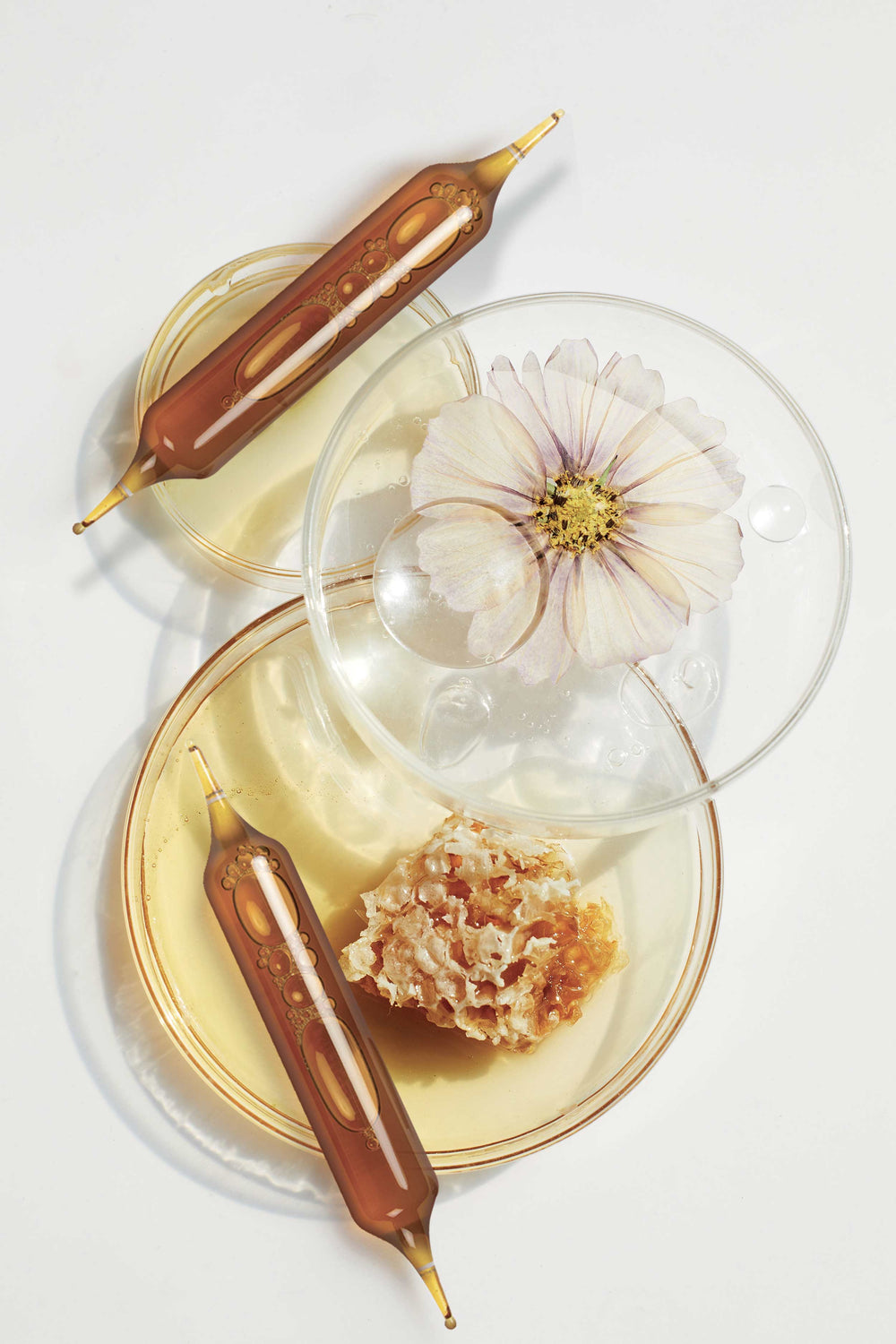Everything you need to know about manuka honey
Written on January 7, 2026, by Pauline de Santarome
Over 800 years ago, traditional New Zealand medicine used Manuka honey to treat wounds and infections. Derived from the Manuka flower, this unique honey is also known as "Nectar of the Gods."
Native to New Zealand, Manuka is a shrub belonging to the Myrtaceae family. Its fragrant leaves distinguish it from other shrubs. Growing up to 3 meters tall, it has highly fragrant white flowers. To produce the "Nectar of the Gods," bees gather nectar from flowers that bloom for only 6 weeks a year.
The characteristics of Manuka honey
This southern plant produces honey that has antibacterial properties 100 times stronger than other types of honey.
The high methylglyoxal (MGO) content makes this nectar a precious and unique honey. The MGO rating gives you an idea of the effectiveness of the honey you are buying. You can find honeys ranging from MGO 100+ to MGO 1000+. For MGO 1000+ Manuka honey, this means that the honey has a concentration of 1000 milligrams of MGO per kilogram of honey.
The MGO rating therefore tells you how potent the Manuka honey is.

High-quality beekeeping
Several criteria are taken into account when determining MGO concentration:
- The ground
- The location of the plant
- Weather conditions
- Harvesting methods
The plant is exceptionally hardy and grows in very harsh climatic conditions. Manuka is highly resistant to humidity, drought, wind, and frost.
The flowering period is very short, lasting from November to December. Weather conditions such as rain and wind must not affect the bees during this short period.
In order to obtain honey rich in dihydroxyacetone, beekeepers must choose areas where Manuka trees grow. Local beekeepers recommend one hectare of Manuka per hive.
After harvesting, Manuka honey is stored at a temperature of approximately 22 to 37°C for 12 to 22 months. This long storage period optimizes the dihydroxyacetone conversion process and maximizes the amount of methylglyoxal.
The health benefits of manuka honey
The higher the methylglyoxal content, the more active ingredients the honey contains. Manuka honey has properties such as:
Affects respiratory discomfort
Strengthens the immune system
Natural healing agent
Soothes gastrointestinal discomfort
Oral comfort
In addition to treating colds and flu, Manuka honey is also used to treat digestive disorders and for skin care, beauty, and health. After numerous scientific studies, this honey is recognized as a miracle of nature.
The various uses of Manuka honey
Professor Thomas Henle has demonstrated that Manuka honey has 100 times greater antibacterial power than other honeys due to the presence of the molecule methylglyoxal.
Depending on its MGO concentration, Manuka honey does not have the same indications and uses.
With a concentration ranging from 30+ to 100+ MGO, the nectar of the gods is recommended for nutrition and everyday well-being.
At a concentration of 250+ MGO, Manuka honey has beneficial effects on well-being, minor wounds, and digestion.
Finally, a concentration of 400+ to 550+ MGO is used for respiratory problems such as sore throats, coughs, and bronchial infections. But it also acts on wounds, burns, and symptoms of gastroenteritis.
The dosage of the "Nectar of the Gods"
With Manuka honey, there is no real maximum dose. It is recommended to consume 2 to 3 teaspoons of Manuka honey every day. If you want to get the most out of it, we recommend consuming Manuka honey on an empty stomach, 30 minutes before a meal. If you are prone to bladder infections, you can also dilute this honey in a drink.
Manuka honey diluted with cream can be applied to the skin. It is also used to treat wounds, but be careful not to use just any type of honey if you are making a honey dressing. Honey contains 450 different types of bacteria.
Contraindications
As a general rule, honey has a few contraindications.
First of all, the main contraindication concerns the consumption of honey by young children under one year of age. Infants' immune systems are not yet ready to defend themselves against microbes. Honey may contain germs from pollen. Honey is therefore not recommended in infants' diets, and this contraindication is included in the recommendations of the WHO (World Health Organization).
In addition, people with diabetes should avoid consuming honey. Composed of fructose and glucose, honey should not be consumed by people with diabetes in order to avoid worsening their health condition.
Some people who are allergic to pollen or bees may also have an allergic reaction when they consume any type of honey.
Manuka honey is very high in fructose, so it is not recommended for people with hypertriglyceridemia. Hypertriglyceridemia is an elevated level of triglycerides in the blood.
Discover Manuka Royal
Discover Manuka Royal by Santarome Bio: a range of natural and organic dietary supplements containing organic Manuka honey, as rare as it is precious, combined with unique formulas to boost your immunity.














